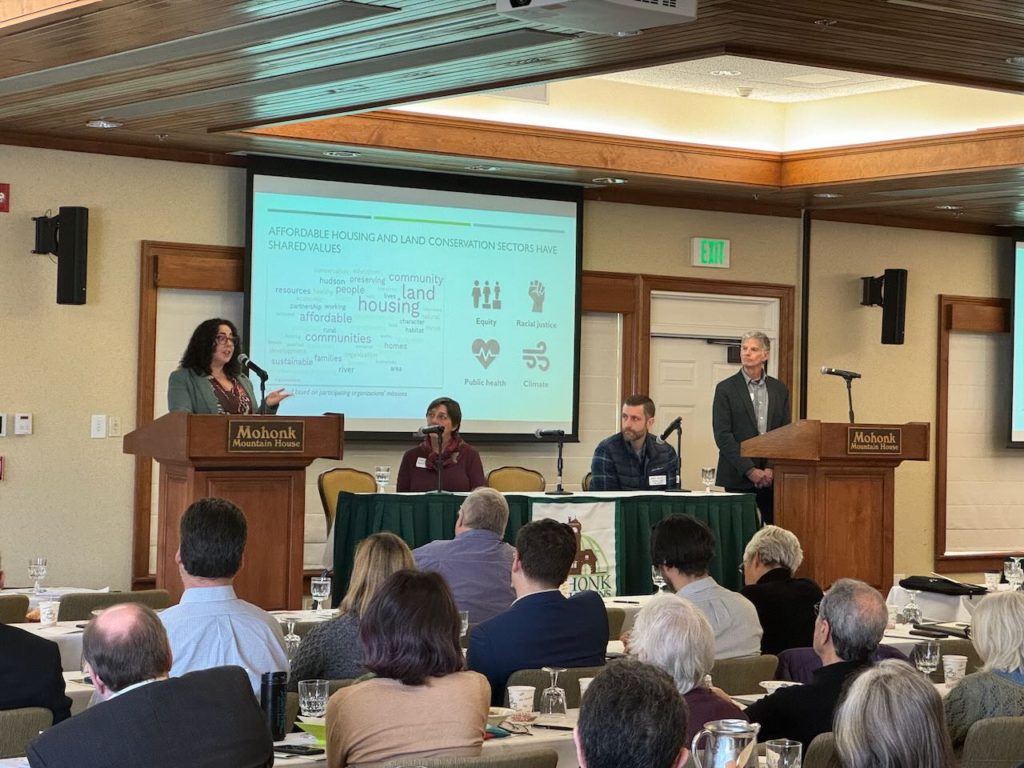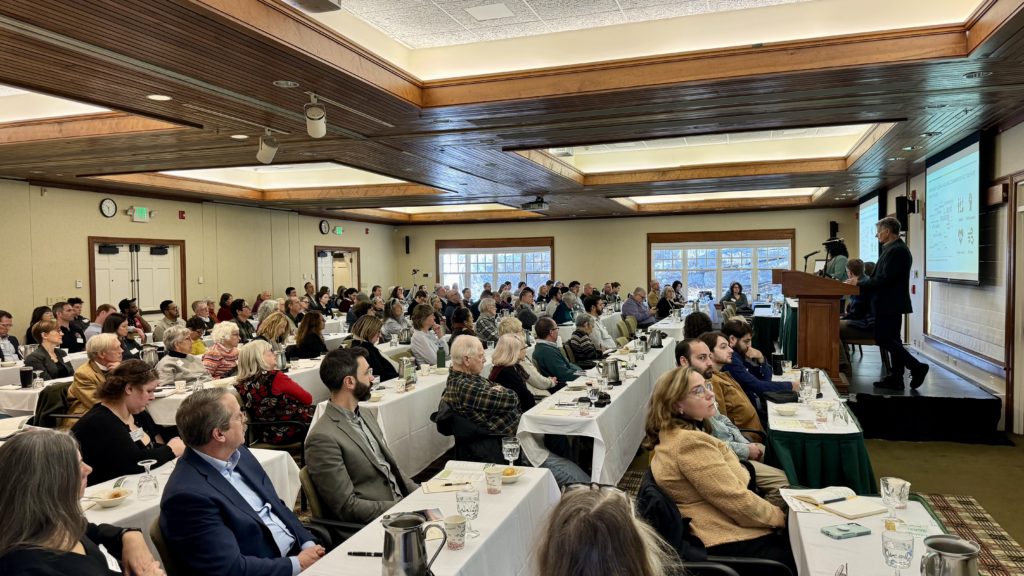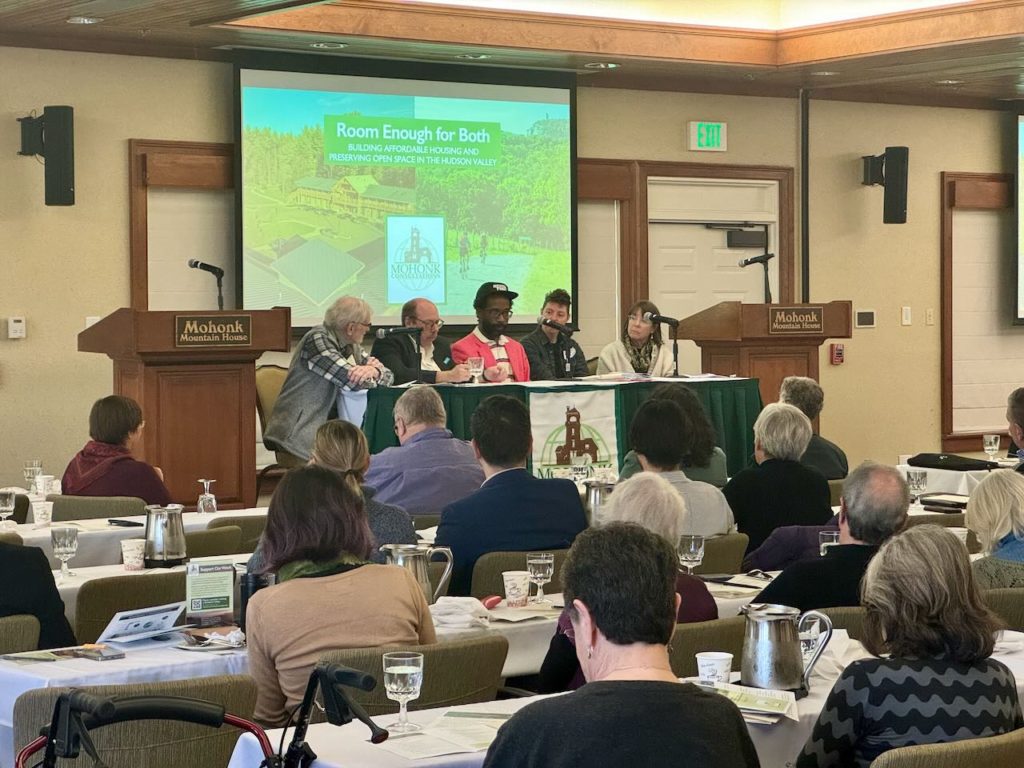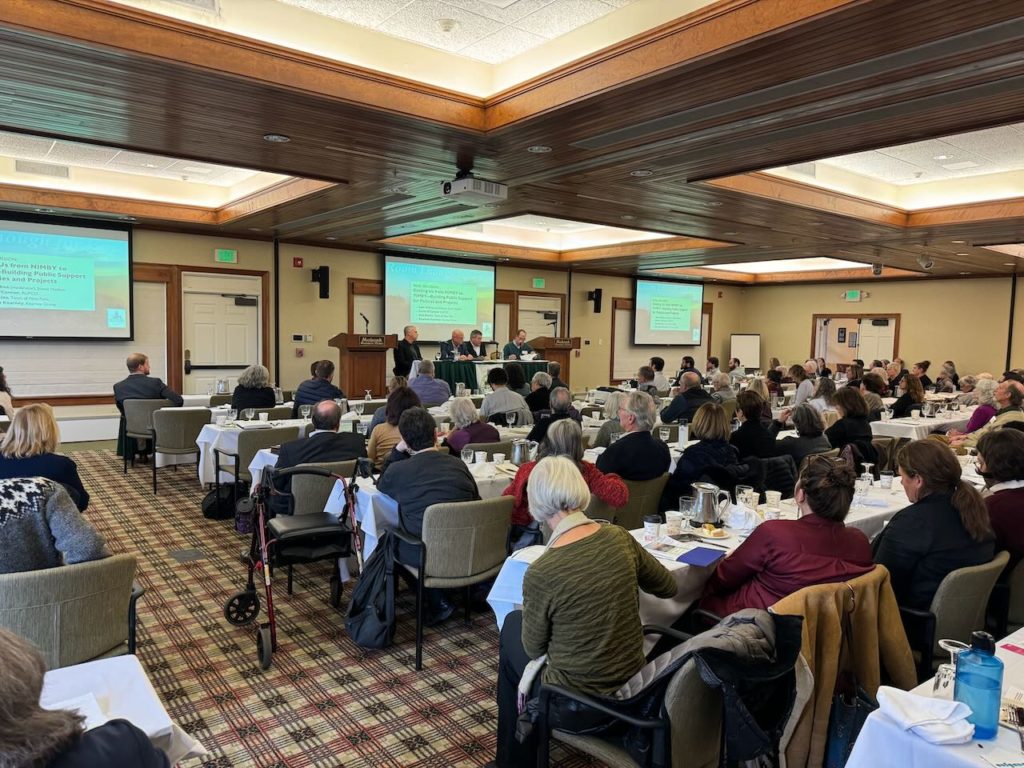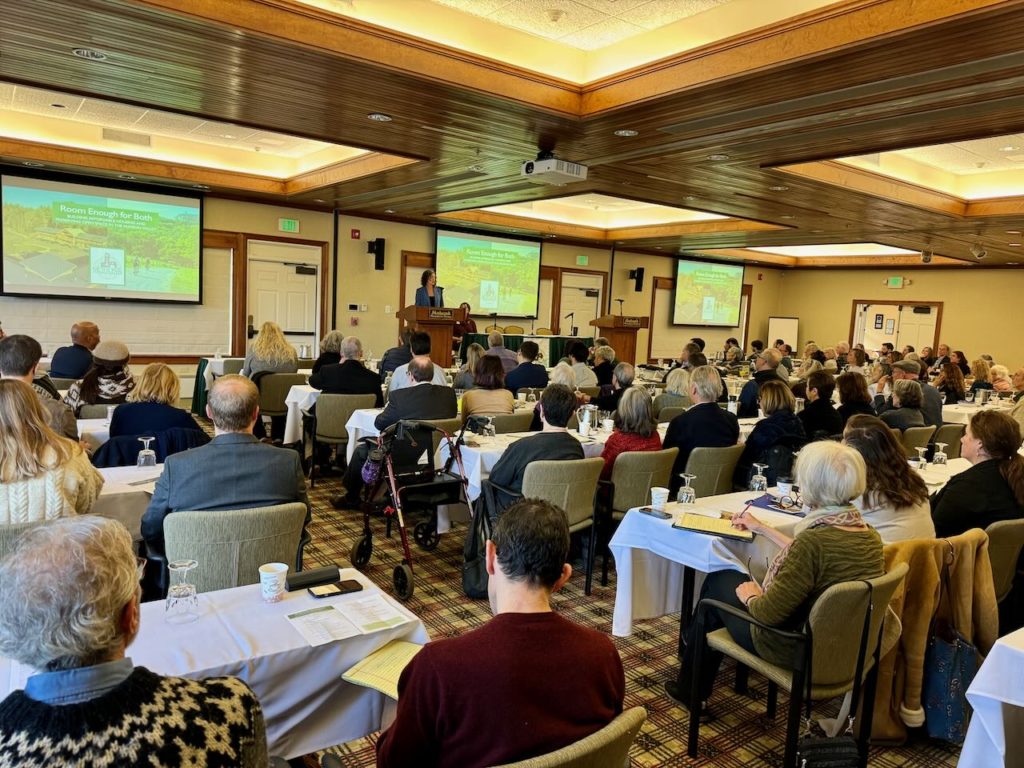
ROOM ENOUGH FOR BOTH: Building Affordable Housing and Preserving Open Space in the Hudson Valley
Healthy communities need both abundant, affordable housing and protected land that supports clean water, food production, climate resilience, and outdoor access.
MOHONK MOUNTAIN HOUSE, November 13, 2023—Mohonk Consultations’ fall 2023 Conference explored the relationship between the urgent need in the Hudson Valley for affordable housing and the continuing importance of conserving undeveloped land for agriculture, environmental quality, recreation, and health. Experts and advocates from the affordable housing and conservation fields presented promising collaborative approaches underway in the Hudson Valley to provide equitable, stable housing options while protecting critical lands that meet community needs and will underscore connections in addressing the climate and affordable housing crises.
Mohonk Consultations developed this program in collaboration with the Hudson Valley Affordable Housing & Conservation Strategy. Co-led by Steve Rosenberg, former Senior Vice President at Scenic Hudson, and Rebecca Gillman Crimmins, from Institute for Community Living, the project has drawn together five leading regional land conservation organizations and five not-for-profit affordable housing organizations, with the assistance of the Regional Plan Association and the Consensus Building Institute.
The purpose of the project is to develop and achieve a vision of the Hudson Valley as “a sustainable and inclusive home to an economically and racially diverse community, and to help the region develop a holistic, equitable and proactive approach to housing, climate change and land conservation.”
“Affordable housing and land conservation organizations have made progress addressing these issues within their own sectors but the problems we face are too urgent, massive, and intertwined to be solved separately – the current siloed approach is not accomplishing enough,” says Rosenberg.
Land is the common denominator—neither affordable housing nor conservation goals can be achieved without it. This unique, regional approach built on shared values, trust and mutual support is creating a new “playbook” that can inform our elected leaders, investors, developers, conservationists and our families and neighbors on how to create a more equitable and sustainable future.
Adam Bosch, CEO of Hudson Valley Pattern for Progress used detailed data to present the picture of the housing crisis in the Hudson Valley. The situation stems from the fact that less housing has been built here in the last 25 years than in other comparable areas, while construction in the supply and migratory forces have caused prices to increase significantly. The cost of home ownership is now out of reach for the majority of our neighbors, and production of new housing is stifled by interest rates, supply costs, labor, land costs – all factors which contribute to the unaffordability of rental units as well.
The Way Forward
The need for affordable housing is so urgent that it poses an opportunity to have new conversations, and to collaborate with new partners to find new solutions. It is time to leave our silos behind. Specifically, collaboration between land trusts and affordable housing groups is new and points to a course-shifting collaborative effort, as a region, to demonstrate strategies to address two of today’s most pressing challenges.
Here are collaborative strategies proposed by Steve Rosenberg and Rebecca Gillman Crimmins at the conference:
- We can and need to communicate as a chorus across the region, demonstrating mutual support and giving our leaders the strength to take the right positions on these issues.
- Affordable housing groups and land trusts need to work with local and county governments that want to partner or lead on these issues.
- Affordable housing and conservation groups need to support one another, and collaborate, to build stronger communities. These collaborations leverage each other’s relationships, resources, and skill sets to advance projects.
- We must ensure that local land use policy identifies places for multifamily housing and prioritizes smart growth and the protection of critical environmental resources,
- We need to advocate for state policy that supports accomplishing both goals in tandem.
- We need to encourage private philanthropy to support these efforts.
- We need to debunk the myths that created the current situation.
- People need to know that affordable housing is sustainable, energy efficient, and a contributor to community vitality, not a burden
- Housing and conservation groups need to communicate differently to their boards and constituents. Talking about smart growth, affordable housing, and climate as part of a more holistic approach to building a healthier, more sustainable region, and to begin to change the narrative from “no” to “yes.”
Conference Resources and Recordings
Visit our conference resources page for additional details about the event, including a the conference program, contact information for speakers and panelists, downloadable copies of slide presentations and links to video recordings.
